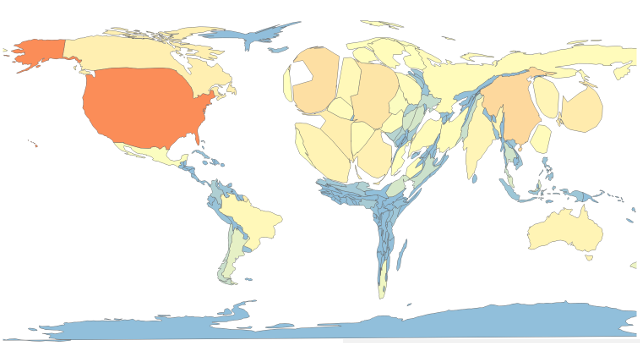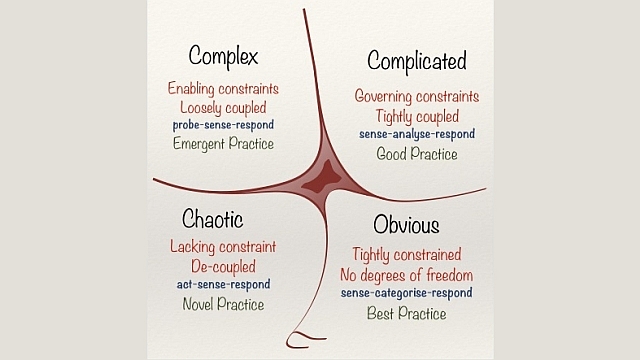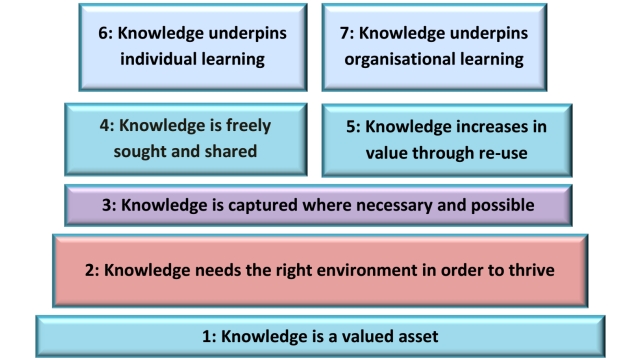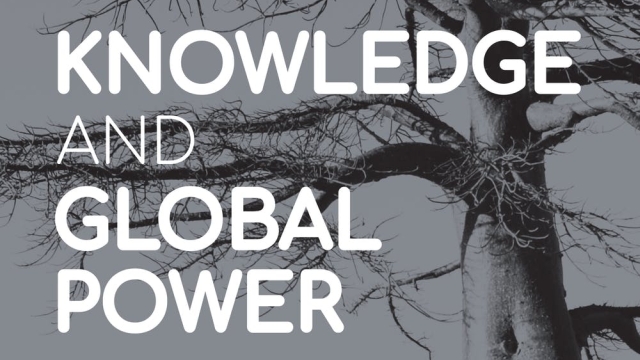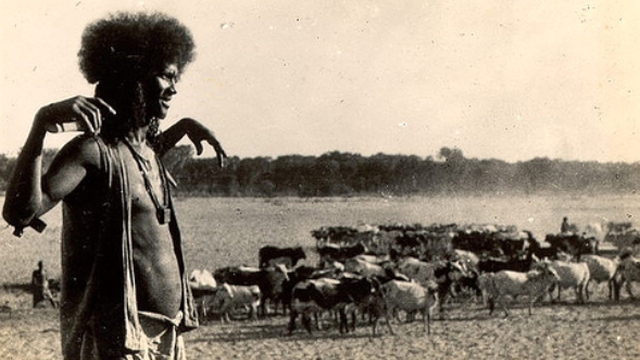
The case for indigenous knowledge systems and knowledge sovereignty (part 2): The broader context
This article is part 2 of a series of articles putting forward the case for indigenous knowledge systems (IKS) and knowledge sovereignty, featuring selected excerpts from the book Knowledge Sovereignty among African Cattle Herders.
Since the 1960s, the Green Revolution has inspired so-called modern, high-input high-output agricultural practices that have been pushing small-scale farmers, pastoralists, agro-pastoralists and other traditional food producers to the periphery, and, in some instances, to the point of extinction. This has resulted in unprecedented changes in the lives of those who have had traditional, if not legal, access to the land used and sovereign knowledge they have kept for generations. These changes have also brought the people into direct conflict with modern, commercial agricultural producers and the state itself. In a more philosophical sense, however, this only underlines the deeper battle being waged between IKS and the hegemony of western knowledge. It can also be argued that many elements of modern science (modern medicine, agriculture, mathematics, etc.) are partly rooted in indigenous knowledge principles, a historical truism which is often neglected; however, such an argument would be beyond the scope of this analysis.
The main focus of … [Knowledge Sovereignty among African Cattle Herders] is the study of specifc aspects of IKS among cattle keepers in the Horn of Africa, the marginalisation of their knowledge system, and its potential use for the sustainable intensification of livestock production. However, it is important to frame the neglect of IKS as a science in a much broader, global, neoliberal, pro-Green Revolution context, and then make a case for its potential use based on empirical evidence.
In the aftermath of World War II, Europe was left devastated, unable to grow enough food to feed its population. Consequently, governments began a concerted effort to boost their food production capacities by providing favourable conditions to farmers and encouraging efficiency. In Britain, for example, ‘the 1947 Agricultural Act guaranteed markets and prices in exchange for increased efficiency, encouraged further in the 1957 Act’ 1. National intensification efforts such as this were also reflected in the 1968 Mansholt Plan in Europe, which further consolidated agricultural land and promoted increased production 2. This eventually presented a problem as Europe regained its food sovereignty and surpassed its own consumption, which, in turn, raised the question, ‘Where does the excess food go?’ The only place to sell this surplus was in the newly decolonising nations. With agricultural exports written into the European Common Agricultural Policy (CAP) and a global free market beginning to be touted by such organisations as the World Bank and the International Monetary Fund (IMF), agricultural dumping practices became the norm and are still in use today.
In The Development of Underdevelopment, Frank3 describes how, through the processes of colonialism, mercantilism and capitalism, the economies in the global South were transformed and subjugated by the North, a phenomenon he termed underdevelopment.
We cannot hope to formulate adequate development theory and policy for the majority of the world’s population who suffer from underdevelopment without first learning how their past economic and social history gave rise to their present underdevelopment.4
He goes on to explain that economies in the global South had been transformed into feeder economies to sustain those of the North, providing raw materials for consumption and value-adding manufacture. The finished product would then be sold back to the feeder economy in the South at a substantially higher price than the initial raw materials, thereby perpetuating this underdevelopment. So, the countries in the South experienced a loss of economic freedom as the gap widened between them and the North; this loss of economic balance encouraged a view of the environment simply as a resource to be sold on the market, and this became the dominant view. Also, economic perspective was lost as efforts to escape this underdevelopment became more and more mainstream, following neoliberal economic thinking. All of this was a result of buying into this modern, Northern conception of economics and technology transfer.
The increase in food production could not have been achieved without the neoliberal governmentality 5, which promoted activities in line with the prevailing dominant economic paradigm (i.e., neoliberalism), which essentially emphasises privatisation and the rollback of state involvement in the economy. According to Scott6, ‘efforts at sedentarisation are a state’s attempt to make a society legible, to arrange the population in ways that simplify the classic state functions of taxation, conscription, and prevention of rebellion, since common land, although a vitally important subsistence resource for the rural poor, yields no revenue’. In any case, sedentarisation – spontaneous or as part of a resettlement scheme – has produced negative economic, social and ecological effects, as the many attempts to sedentarise pastoralists in the Sudan and elsewhere show7. It is clear that ‘forced sedentarisation is both ethically dubious and unlikely to succeed’ 8.
The destruction of the commons is another theme running through contemporary political and economic policies. Throughout the global South, we see lands which were once recognised as communal now being set aside and sold for private commercial enterprise. This … [is] discussed in … [Knowledge Sovereignty among African Cattle Herders] in connection with landowners in the Horn of Africa forcing pastoralists, agro-pastoralists, small farmers and others out of what was previously regarded as public or communal land.
In the case of eastern Sudan, ‘the last generation of pastoralists has seen rangelands shrink by approximately 20 to 50 percent on a national scale, with total losses in some areas’ 9. ‘A study in Gedaref State, in Eastern Sudan[,] reported that grazing lands reduced from 78.5 percent (28,250 km2) of the state’s total area in 1941 to 18.6 percent (6,700 km2) in 2002 10. Conversely, the mechanized farming sector increased by 725 per cent in the same period – from 3,150 km2 in 1941 to 26,000 km2 in 200211 ’ 12.
The marginalisation of indigenous knowledge and its adherent communities in the global South is therefore not a historical accident, and should be analysed in the above context. In short, economic (neoliberal) governmentality and the destruction of the commons have been at work in agricultural policy practice, driving out indigenous knowledge systems and practices in the global South.
The ambitious enterprise of increasing total food production with little concern for the environment or other destabilising economic and social effects became known in academic circles as productivism; its policy prescriptions can be seen in the overall effort to utilise scientific knowledge in the pursuit of increasing yields, again with little thought for social and environmental factors.
Next part (part 3): The ‘indigenous’ versus the ‘scientific’ position.
Article source: Knowledge Sovereignty among African Cattle Herders is licensed under CC BY 4.0.
Header image source: Tigre man from Barka Valley is in the Public Domain. The Beni-Amer people probably emerged in the fourteenth century AD from the intermixing of the Beja and the Tigre.
See also: Cultural awareness in KM.
References:
- Herman, P. and Kuper, R. (2003). Food for Thought: Towards a Future for Farming. London: Pluto Press. p. 2. ↩
- Herman, P. and Kuper, R. (2003). Food for Thought: Towards a Future for Farming. London: Pluto Press. ↩
- Frank, A.G. (1966). The Development of Underdevelopment. Boston, MA: New England Free Press. ↩
- Frank, A.G. (1966). The Development of Underdevelopment. Boston, MA: New England Free Press. p. 4. ↩
- Foucault, M. (1991). ‘Governmentality.’ In The Foucault Effect: Studies in Governmentality, 87–104. Chicago: University of Chicago Press. ↩
- Scott, J.C. (1998). Seeing Like a State: How Certain Schemes to Improve the Human Condition Have Failed. Yale ISPS Series. New Haven, CT: Yale University Press. p. 2. ↩
- IUCN. (2012) ‘Policy Study reports on Pastoralism as Conservation in the Horn of Africa: Sudan Country Study.’ https://www.iucn.org/content/policy-study-reports-pastoralism-conservation-hornafrica, retrieved 11 July 2018. ↩
- Blench, R. (1999). ‘Extensive Pastoral Livestock Systems: Issues and Options for the Future.’ Prepared under the FAO-Japan Cooperative Project GCP/JPN/005/JPN ‘Collection of Information on Animal Production and Health’. ↩
- UNEP. (2007). Sudan: Post-Conflict Environmental Assessment. Nairobi: United Nations Development Programme. https://postconflict.unep.ch/publications/UNEP_Sudan.pdf, retrieved 11 July 2018. p. 186. ↩
- Babikir, M. (2011). ‘Mobile pastoralism and land grabbing in Sudan: Impacts and responses.’ Paper presented at the international conference on the Future of Pastoralism, Addis Ababa on 21–23 March, organised by the Future Agricultures Consortium at the Institute of Development Studies, University of Sussex, and the Feinstein International Center at Tufts University. ↩
- Babikir, M. (2011). ‘Mobile pastoralism and land grabbing in Sudan: Impacts and responses.’ Paper presented at the international conference on the Future of Pastoralism, Addis Ababa on 21–23 March, organised by the Future Agricultures Consortium at the Institute of Development Studies, University of Sussex, and the Feinstein International Center at Tufts University. ↩
- Krätli, S., El Dirani, O.H., and Young, H. with Samira Mohammed Ahmed, Osman Mohammed Babiker, Musa Adam Ismail, Abdelazeem Hassan and Azharia El Bushra. (2013). Standing Wealth: Pastoralist Livestock Production and Local Livelihoods in Sudan. Nairobi: United Nations Environment Programme. p. 13. ↩

